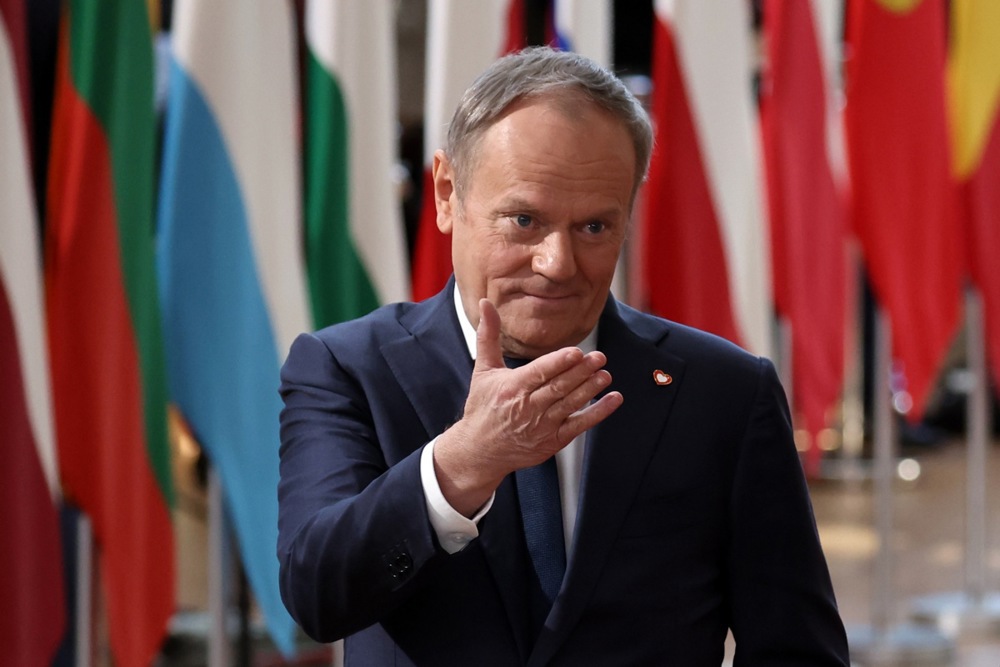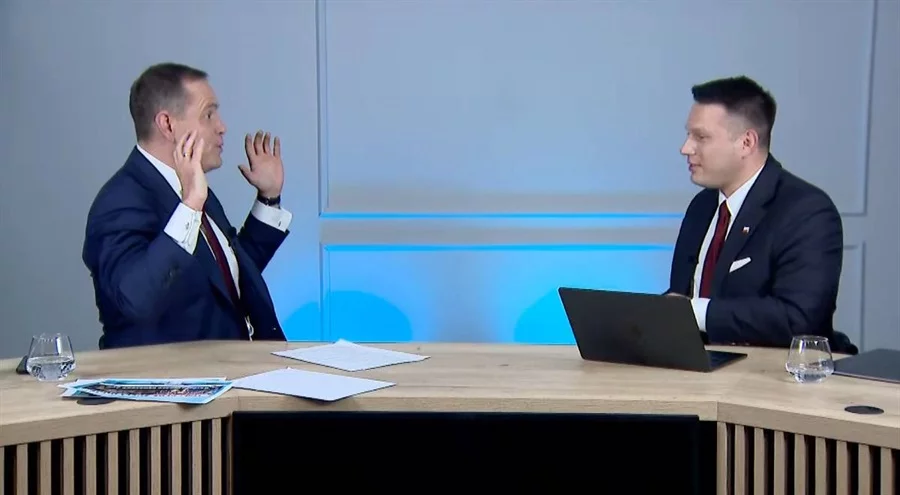Polish Prime Minister Donald Tusk, the centre-left coalition government leader, has asked parliament to initiate a vote of confidence in his government.
Tusk made his move in a televised address to the nation on June 2, just a day after Poles elected Karol Nawrocki, the opposition Conservatives (PiS), candidate, as President and rejected the government’s candidate Rafał Trzaskowski.
Nawrocki on June 2 received customary congratulations and good wishes from other political heavyweights, including European Commission’s President Ursula von der Leyen, NATO General Secretary Mark Rutte and Czech president Petr Pavel – but not from PM Tusk.
Tusk accepted the election result grudgingly, without naming Nawrocki in his remarks.
“However we may assess the victorious candidate, we have to accept his victory and congratulate his voters which is what I am doing,” said Tusk.
“A plan to deal with the difficulties of cohabitation is in place. We cannot predict what approach the new President will take. If he chooses to be co-operative it would be a pleasant surprise.”
In an allusion to the conflict between his government and the PiS-aligned current President Andrzej Duda, who is leaving in August after completing his second and final term as head of state, Tusk added that his government “already has experience of working in a situation when that cooperation is not forthcoming”.
He said the administration would continue with its programme even if the new President tried to block legislation by using his power of veto.
“We will not stop for a moment fighting in the common struggle for the Poland we dreamt of at the dawn of independence; free, sovereign, safe and prosperous.
“The presidential election has changed nothing, ” Tusk declared, despite the fact that his coalition lacks the required 60 per cent parliamentary majority required to overturn any presidential veto.
In a defiant move to reassert his authority and head off speculation of his government falling apart after its presidential election defeat, Tusk said the first test of the administration’s ability to carry on “will be a vote of confidence that I will request from parliament in the near future”.
“I want everyone to see, including our opponents at home and abroad, that we are prepared for this situation, that we understand the gravity of the moment but that we do not intend to take a single step backward.”
If a tabled motion of confidence failed, the government would be deemed to have resigned and Duda would have to nominate a candidate to form a new one. If the attempts to form a new government failed over a six-week period, parliament would have to be dissolved and early national elections held.
According to the latest opinion polls, early elections would lead to a majority in parliament for the PiS and Confederation.
The opposition PiS has seen Tusk’s move for a vote of confidence as signalling that he would continue to attempt to avoid legislation and presidential powers. Instead, he would continue to rule by administrative decrees and parliamentary and government resolutions, over which the PiS have criticised him since his government took office in late 2023.
PiS leader Jarosław Kaczyński appealed to the PM to “accept the verdict of the electorate and resign”. He said that would make way for “a government of non-party figures” who would be backed by the widest possible parliamentary majority and charged with tackling “the crisis in the public finances and the need to enhance Polish security”.
“Poland needs a period of calm and reflection to reduce the polarisation in Polish politics,” he said, adding that a government made up of experts not directly connected with political parties would help.
Kaczyński recalled that, in Romania recently, the defeat of the government-backed candidate led its Prime Minister to resign and advised Tusk to accept the “red card issued by the voters”.
He did not, though, elaborate as to who would lead a new government and what elements of the present ruling coalition might support such an administration.
To succeed with its plan, the opposition would have to table a vote of constructive no confidence naming an alternative candidate for prime minister and gain the support of at least a part of the current ruling majority.
The Tusk government has been composed of his centre-left Civic Coalition (194 seats); the Third Way alliance (64 seats) made-up of the centrist Poland 2050 and Polish People’s Party (PSL); and the Left party.
The ruling coalition in total held 243 out of 460 seats in parliament, whereas the opposition made-up of the PiS (194 seats) and the right-wing Confederation party (18 seats) had 212 MPs.
The most Conservative of the parties in the ruling coalition and the one the PiS would hope to persuade to leave the group was the rural PSL. It was courted by the PiS after the parliamentary election of 2023 and its leader Władysław Kosiniak-Kamysz has been offered the post of prime minister in return for agreement to help ditch Tusk’s coalition.
The PSL, which held 28 out of Third Way’s 64 seats, has remained in Tusk’s broad tent but has refused to endorse liberalising abortion law or to introduce civil partnerships for same-sex couples.
It was also the most reluctant party in the present government with regards to implementing the EU’s Green Deal policies, especially with regard to farming.
This meant for Kaczyński’s plan to succeed he would need to attract the support of both the PSL and Confederation or the support of the whole Third Way alliance.
Confederation has already distanced itself from Kaczyński’s ideas, with leader Krzysztof Bosak declaring that his party would oppose the confidence vote on the Tusk government. He indicated he felt the only alternative to the current administration lay in parliament voting by the required 60 per cent majority for dissolution so early elections could be held.





